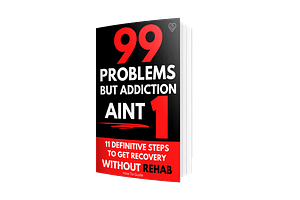Is drug addiction defined as sociological or medical? Drug addiction is a complex issue that has been studied for generations by historians, medical professionals, drug users themselves, and sociologists. Whether drug addiction should be seen as an illness or a societal problem is still up for debate. This article will explore drug addiction definitions from all perspectives, to help you come to your own conclusions about what drug dependence means in the world today.
Symptoms of drug addiction – the medical perspective
DSM-5:
The Diagnostic and Statistical Manual of Mental Disorders Fifth Edition (DSM-5) is a manual of sorts to help with the assessment and diagnosis of mental disorders. When it comes to the causes of drug addiction and causes of drug abuse, the DSM-5 does not shed any light on this as it is a diagnostic manual and focuses more on the symptoms of drug addiction to help the medical professional in the diagnostic process.
The DSM-5 has eleven criteria for substance use disorders based on decades of research. The DSM-5 has been great in many ways to help us think differently about addiction and has helped professionals and society shift away from overly focusing on withdrawal.
The DSM-5 includes guidelines for medical professionals and clinicians to determine how severe a substance use disorder is depending on the number of symptoms. Two or three symptoms suggest a mild substance use disorder; whereas four or five symptoms indicate a moderate substance use disorder, and six or more symptoms suggest a severe substance use disorder. A severe substance use disorder is also known as having an addiction. For many people, this is where language becomes incredibly confusing; many people get confused between the words addiction and substance use disorder, and also feel this type of language can be discriminatory.
The medical perspective, and method behind doctors determining the severity level of the substance use disorder or addiction, are to help develop the best treatment plan. Although these rankings cannot indicate the effects of addiction, the severity ranking can suggest the style or type of drug addiction treatment that may be most effective for an individual.
This perspective of addiction suggests that this is an illness, which many individuals do not accept. Despite being listed in the DSM-5, many high-level researchers and professionals around the world disagree and believe there is more to the story.
Drug Addiction Definition Sociology – the social perspective
The other dominant definition of drug addiction looks at sociological theories to understand substance use and abuse as a societal phenomenon, having largely cultural, social, and economic origins. The causes in this perspective are external to the individual e.g. they are not biological, genetic or psychological traits held by the individual.
These factors are often referred to as social determinants which again refers to the impacts of income levels, power, education level and employment, and how that may undermine the health of that individual.
This perspective of addiction makes sense to lots of people because examples of social determinants of health in the Australian community can often line up with higher rates of substance use or higher rates of substance harm. e.g. the harm caused by alcohol in many Aboriginal communities.
Individuals also take issue with this perspective of addiction because they often will be experiencing severe addiction problems however don’t feel they don’t relate to these social determinants of health.

GRAB THE BOOK BY CLICKING HERE
Conclusion
So is drug addiction defined as sociological or medical? The truth as we know it today, is we don’t actually know 100% either way.
You can put highly distinguished professionals in a room from either side of the argument and they will mount a very, very compelling case.
At Connection Based Living, like all good things, we believe the truth is someplace in the middle. We see the best results with clients when they focus on both sides of the equation. When you accept both you can then take responsibility, helping you to work on your biology with Doctors, and your environment and psychology with counsellors and coaches.
If you are looking for help and support, we would recommend that you check out our latest article, “Drug Rehab Australia – The Ultimate Guide” to understand what the best option is for you. This will help you to also understand which addiction perspective fits best with you.
Connection Based Living offers free consultation sessions in which we can help you discover the best way to support you or your loved one. To book a free consultation you can click the link below:
www.connectionbasedliving.com/bookcall
We hope that this article helps, and would love to hear what you think in the comments.
